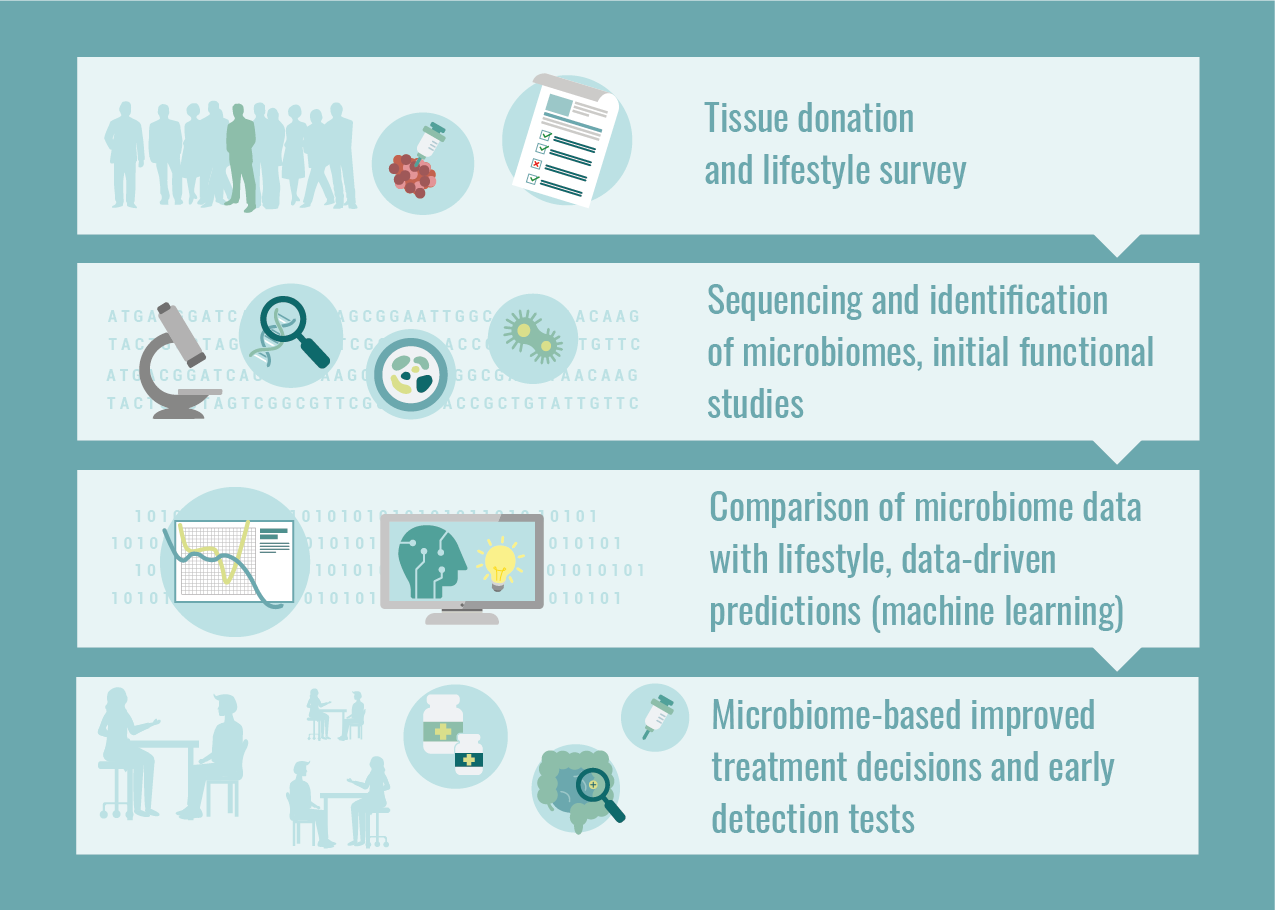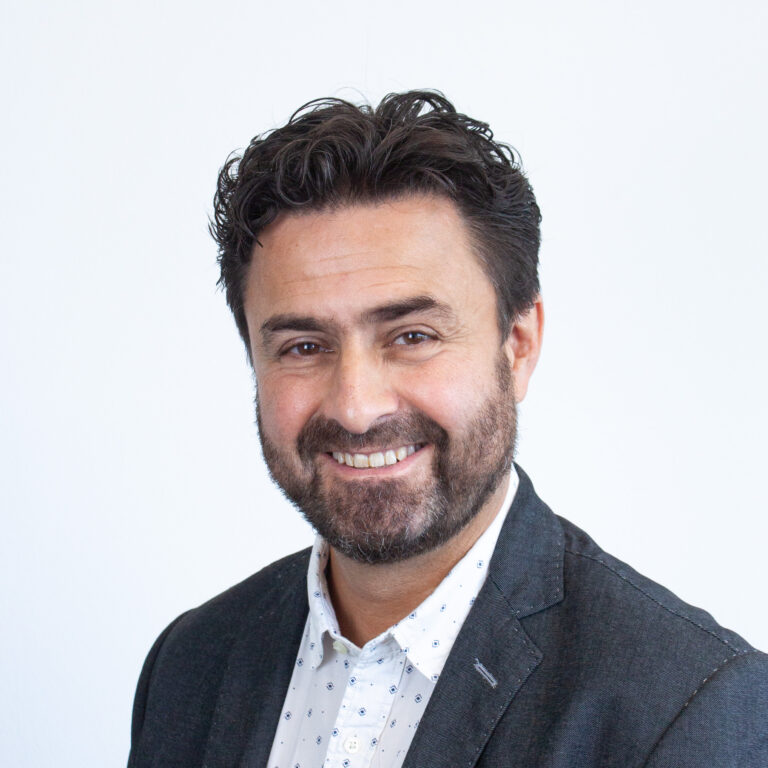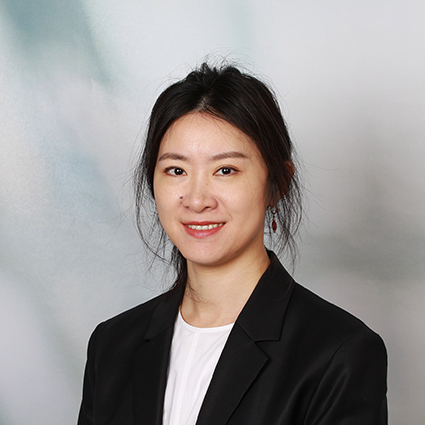MiTi-SECC Study
The interaction of tumor cells and the patient’s microbiome
About the project
MiTi-SECC: „Deciphering Microbial-Tissue Interactions for a Refined Signature of Early Stage Colorectal Cancer“
The human intestinal tract is home to a large community of bacteria, fungi, yeasts, viruses and other single-celled organisms known as the microbiota. These microorganisms influence the human organism in many different ways and live in a complex, long underestimated symbiosis with it.
Each microbial species has unique properties that are crucial for metabolism, growth and communication. In addition to their function as digestive aids, they contribute to the development of the immune response. Studies suggest that they play a role in the development of bowel cancer. The composition of the microbiome differs greatly from person to person. It is partly inherited, but can also be changed, for example through diet, medication or lifestyle.
The aim of the MiTi-SECC project is to analyze the microbiota-colon cancer interactions together with the patient’s lifestyle data in order to achieve a better stratification of CRC subtypes according to their microbial population.
Participation of the Tumor Biology & Research Department
In collaboration with the Visceral Oncology Centre of the Tumorzentrum Heilbronn-Franken and the Personalized Medicine Research Department, faecal samples and tissue are collected from the same patients. In the meantime, an organoid culture of the same patient is created and used for co-cultivation with specific bacterial species of interest. The co-culture allows us to test the interaction between tissue and microbiome in vitro. At the same time, tissue and stool samples are sequenced in collaboration with the Korbel and Bork groups at EMBL to investigate genetic correlations to tumor progression.
To record patient data and materials, the Data Science and AI research department is implementing a system that enables strict separation of metadata and biomaterials under several layers of pseudonyms to protect patient identity. Using the REDCap tool, patients can complete lifestyle questionnaires on the tablet provided.

Funded by
Contact
For further information or
if you have any questions, please contact

Martin Jechlinger
Senior Scientist
Mail Martin.Jechlinger@molit.eu
Phone 07131 / 13345-71

Chaolie Huang
Research Associate
Mail Chaolie.Huang@molit.eu
Phone 07131 / 13345-71